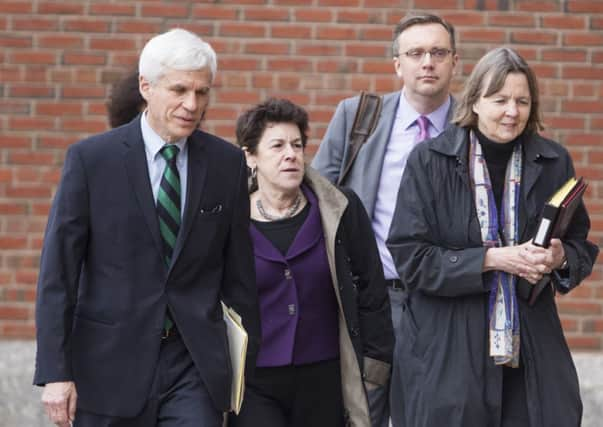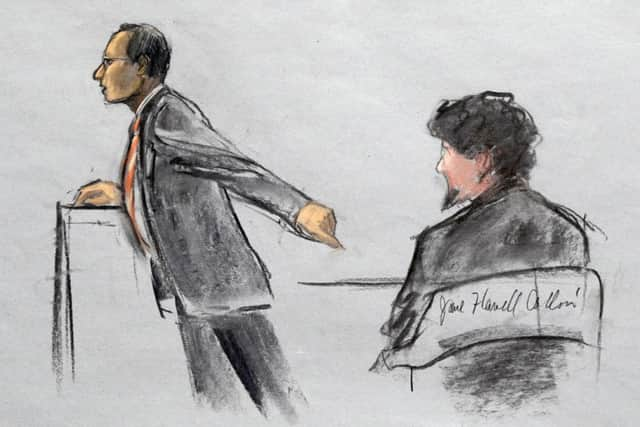Dzhokhar Tsarnaev found guilty of Boston bombing


Dzhokhar Tsarnaev was convicted yesterday by a federal jury that now must decide whether the 21-year-old former student should be executed.
While the trial was one of the most closely-watched in recent US history, Tsarnaev’s conviction was practically a foregone conclusion, given his lawyer’s startling admission during opening statements that Tsarnaev carried out the attack with his now-dead older brother, Tamerlan.
Advertisement
Hide AdAdvertisement
Hide AdYesterday, Tsarnaev kept his hands folded in front of him and looked down at the defence table as he listened to the verdict, reached after a day and a half of deliberations.


He was found guilty on charges that included conspiracy and use of a weapon of mass destruction – all offences punishable by death.
During the sentencing, Tsarnaev’s lawyers will present mitigating evidence they hope will save his life. That could include evidence about his ethnic Chechen family, his relationship with his brother, and his childhood in the former Soviet republic of Kyrgyzstan and later in the volatile Dagestan region of Russia.
Prosecutors portrayed the brothers – who moved to the US from Russia more than a decade ago – as full partners in a plan to punish the US for its wars in Muslim countries. Jihadist writings, lectures and videos were found on both their computers, though the defence argued that Tamerlan downloaded the material and sent it to his brother.
The two shrapnel-packed pressure-cooker bombs that exploded near the marathon’s finish line on 15 April, 2013, killed three spectators and wounded more than 260 other people, turning the traditionally celebratory home stretch of the world-renowned race into a scene of carnage and putting the city on edge for days.
In the next phase of the trial, the jury will hear evidence on whether Tsarnaev should get the death penalty or spend the rest of his life in prison.
In an effort to save him from a death sentence, defence attorney Judy Clarke has argued that Tsarnaev, then 19, fell under the influence of his radicalised brother. Tamerlan, 26, died when he was shot by police and run over by his brother during a chaotic getaway attempt days after the bombing.
“If not for Tamerlan, it would not have happened,” Ms Clarke told the jury.
Tsarnaev’s lawyers tried to have the trial moved out of
Boston because of the wealth of publicity.
Advertisement
Hide AdAdvertisement
Hide AdDuring the sentencing, prosecutors will present aggravating factors in support of the death penalty, including the killing of a child and the targeting of the marathon because of the potential for maximum bloodshed.
FOLLOW US
SCOTSMAN TABLET AND MOBILE APPS